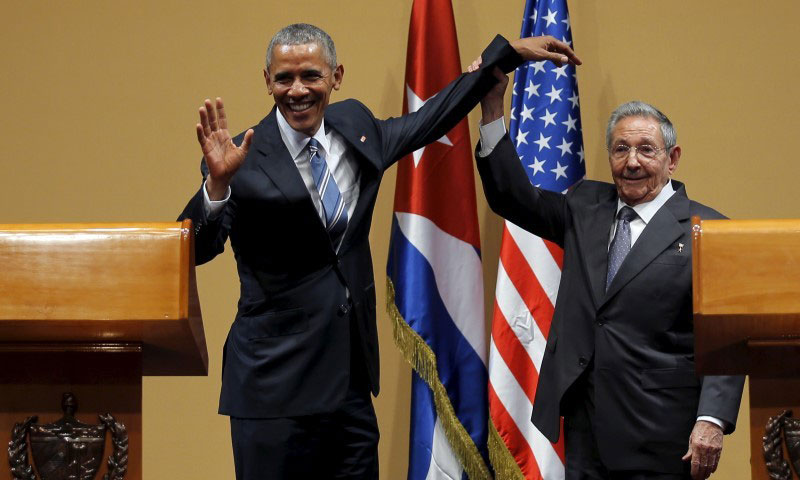
Business Groups See Potential in Obama’s Cuba Trip
Things between the United States and Cuba remain complicated but are improving—something highlighted by President Obama's trip to the island this week. Associations and trade groups are keeping their eye to the island this week as doors for trade and cultural exchange between the countries potentially open.
Relations between the United States and Cuba remain complicated but are improving, a change highlighted by President Obama’s trip to the island this week. Associations are keeping an eye on the diplomatic situation as doors for trade and cultural exchange between the countries show signs of opening.
In the first visit by an American president to Cuba in almost a century, President Barack Obama made clear that he sees opportunity in opening a diplomatic door to the Caribbean nation. It’s the same opportunity that many business groups see. A large number of business leaders and lobbying groups, along with legislators, followed the president to Cuba.
“We’re really excited about this trip because we think it gives us a major shot in the arm to Congress needing to act on this,” James Williams, the leader of the Engage Cuba, said in comments to The Washington Post. “The more we talk about it, the more it’s in the news, the better the chances are in Congress.”
Among the groups that potentially have a lot to gain from the historic trip:
Chicken industry. One area in which relations between the U.S. and Cuba have remained relatively normal is food. Cuba imports as much as 80 percent of its food from other countries, and one of the biggest beneficiaries has been the U.S. chicken industry, which, 15 years ago, won an exemption from the embargo on agricultural products and has since seen the Cuban market expand hugely. But Jim Sumner, president of the USA Poultry and Egg Export Council, said that things can only get better as relations between the countries thaw. “The only limitations on the amount of product that goes there is limits on Cuba’s economy,” Sumner said in comments to Bloomberg. “So as we see Cuba’s economy improve and prosper, we would see more product going down.”
Agricultural groups. Besides chicken and eggs, agricultural exports from the U.S. to Cuba have been scarce in recent years, but the U.S. Department of Agriculture announced that it would allow American agricultural concerns (including public-private “checkoff” groups) to research the market and communicate with the Cuban government, providing a possible breakthrough for the farming industry. “American-grown foods hold a clear competitive advantage in the Cuban marketplace, and the use of farmer- and rancher-generated funds to promote and market U.S. farm goods fits the checkoff mission perfectly,” American Farm Bureau Federation President Zippy Duvall said in a statement on Tuesday. “This announcement by USDA represents a major boost in growing the Cuban market that sits just 90 miles off our coast.”
Baseball players. Baseball—a sport appreciated by both the U.S. and Cuba—took center stage on Tuesday, as an exhibition game between the Tampa Bay Rays and Cuba’s national team drew global interest. The game also helped draw attention to a sticking point for Major League Baseball and its players association: Cuban players hoping to play in the league can’t do so unless they defect from their country. Speaking to ABC News, MLBPA Director Tony Clark said the exhibition game presented an opportunity to discuss the matter. “As much as anything, it’s a very challenging and sensitive issue,” Clark said. “But on the other hand, I think everyone involved has the same concern—affording everybody their dreams of playing in the majors safely. But there remain a lot of hurdles, both political and personal.”
U.S. President Barack Obama, shown with Cuban President Raul Castro. (Carlos Berria/Reuters)






Comments